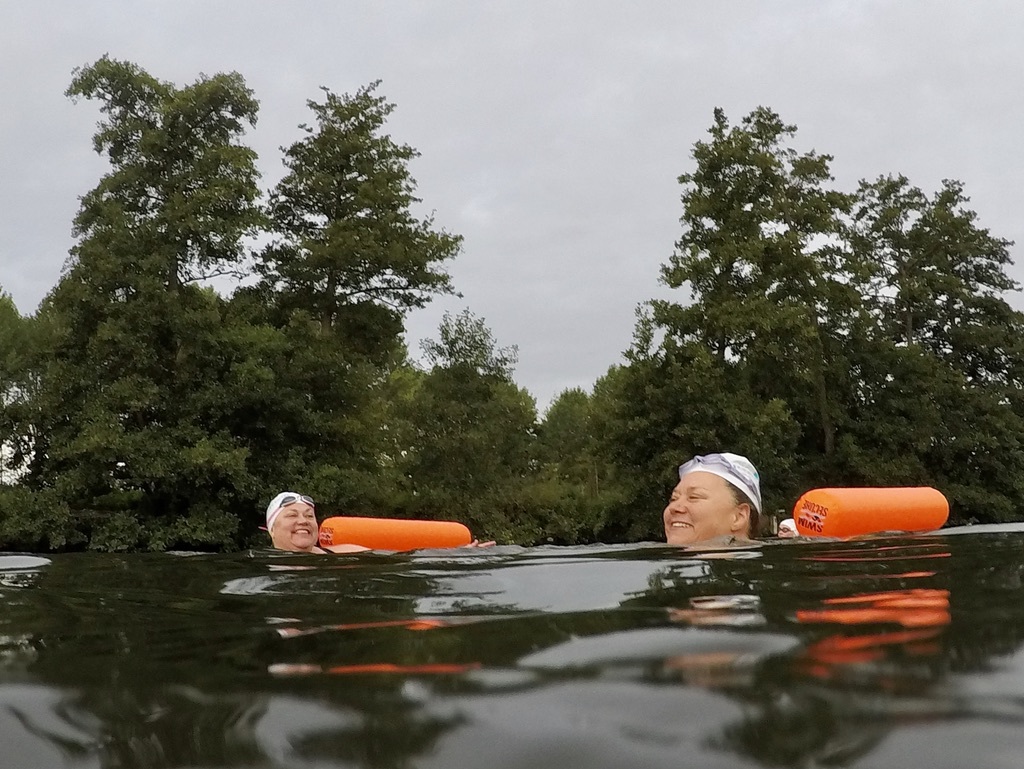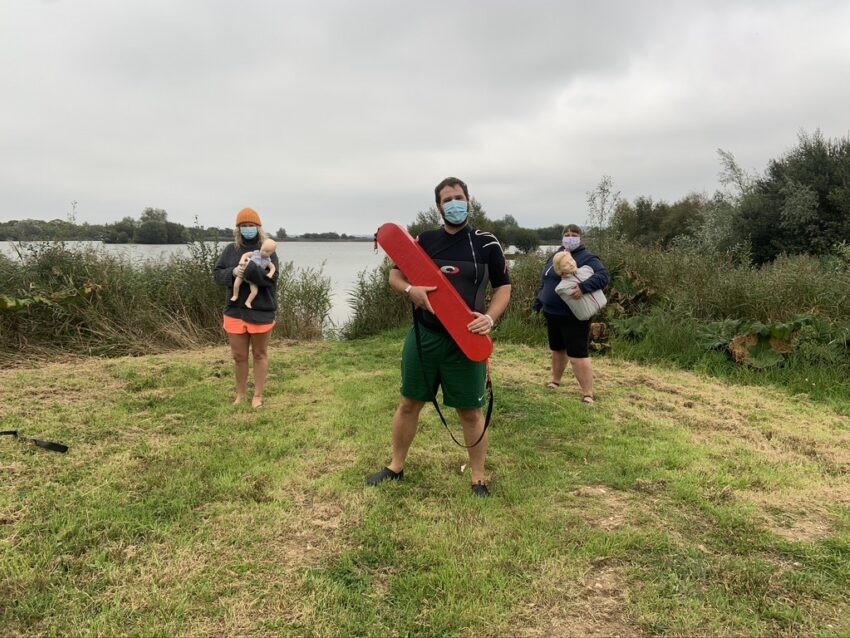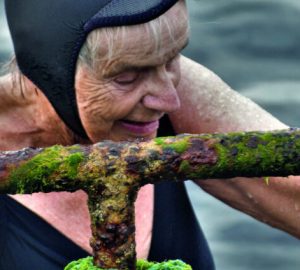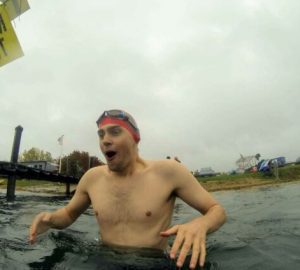Why would you pay someone to take you swimming?
Like so many outdoor swimmers today, I was fortunate to get my experience in open water from a combination of learning to swim in a pool as a child and family holidays at the British coast. Growing up was spent leaping in and out of paddling pools, enjoying lidos and sea swimming. In my twenties I naturally transitioned to swimming in rivers and lakes as I lived so far from the sea and found myself developing a community of like-minded people who became friends, mentors and idols. I didn’t know it then, but I do now, it was a huge privilege to be taught to swim when I was a child and my parents’ appetite for sea swimming was unusual.
As outdoor swimming continues to grow, and more and more people find themselves at the water’s edge there is no surprise that there is also a growth in swimming business. This seems to upset and outrage some existing swimmers who seem to want to hold onto this idea that outdoor swimming should be free. But here’s the thing – it still is! There is nothing stopping anyone from doing a little research, finding a local group, checking a map and going for a swim in a river, lake, pond or ocean that has public access. There is an abundance of brilliant swimming communities across the world and it is a joy. Swimmers willing to share their patch of water and tell you about that underwater obstacle, so you don’t bash into it. Give you advice about currents, tides, cold water, what to wear, what not to wear, what to read and where to meet. But there is also a huge pool of people who are eager to swim wild and free, who simply can’t find their way to the water for a variety of reasons both physically and mentally.

If you are lucky enough to live near a swimmable body of water where a group of like-minded folks gather, and you are brave and able enough to strip off in a layby or car park with strangers – then good for you! But have you stopped to think about how intimidating that could be for someone else? What if you only have a swimming costume and haven’t invested in any other kit yet and you turn up to see a group of people with tow floats, wetsuits and all this unusual gear? Someone could quickly feel out of their depth before even entering the water. Or another common issue is people having all the gear and no idea. People wearing ill-fitting wetsuits that actually hinder their swimming rather than help. Not knowing how to get their tow float set up, put on a wetsuit or in many cases even be able to put on a swim hat. Do you have time to support and help these swimmers? Will you take the time to ensure they are safe, even if it means you miss out on valuable time in the water? What if things go wrong? Do you know first aid? How to use a defibrillator? Can you safely rescue someone who is in trouble without risking yourself? Outdoor swimming mentors and mates are all very well but if it came to it, would they know what to do in an emergency situation?
Often, just because you have agreed to meet an experienced group of swimmers at a river or beach, doesn’t mean they will swim alongside and support you. I will never forget one of my first winter swimming experiences with a friend. I followed two very fit and experienced swimmers into the River Thames, which without realising was in fast flow. They swam off together and left me and another woman swimming as hard as we could against a current in very cold water, we were not strong enough to conquer it. The other swimmers had swum us to the other side of the river, so we were facing any oncoming boats, but hadn’t considered our ability to swim in the conditions. I distinctly remember feeling panicked and realising, this is how people drown. Thankfully, I had enough water experience to know the best thing was to remain calm and I found a way out of the situation safely for the two of us. But what if I hadn’t? How would those two swimmers have felt if the situation had ended in a fatality?

It is a lovely romantic idea that we can learn from each other and keep each other safe. But with the number of new outdoor swimmers, it isn’t realistic. I come across a lot of people who think they are good swimmers, until they get into open water. Time and time again I get comments about how much harder it is, how they are fit on land – but not swim fit, or never really learned to swim properly in the first place. This is a problem and something an experienced swimming teacher, coach and guide can tackle. If a new outdoor swimmer agrees to meet someone for a swim, only to get in the river and find their buddy has swum off without them, because they’re too slow or nervous, it can leave them even more panicked, worried and alone. Weeds, mud, swans, fish and not being able to see or touch the bottom can all terrify a swimmer. It is easy for an experienced swimmer to forget how hard it is in the beginning. Weeds around legs that panic a swimmer can be fatal if they are not being looked after.
These are just basic issues, but there is a whole range of other factors you should consider. It is worth checking your privilege! Have you considered a swimmer who might be body conscious? What if they have hearing difficulties, or registered blind? What if they have recently had a life-threatening disease and had surgery? What if they have a heart condition, diabetes or allergy that would need an epi-pen? Experts deal with all these issues on a weekly basis. I took a client swimming who is blind in bright light – but loves the sensation of outdoor swimming. I took another client who had recovered from breast cancer two years ago, but still felt weak on one side of her body. I talk to my clients about their concerns, health history and issues before we even get in the water, things you might not confide in with a random stranger on the riverbank yet are so important to that individual’s needs and experience. If I hadn’t known about these issues and taken them to the wrong sort of swimming spot, the consequences could have been fatal.
Outdoor swimming is a risky activity. Taking an individual into the water is a responsibility. If you are happy to do this and accept the consequences if anything goes wrong and you have swimmers willing to join you, then go ahead. But don’t be down on experts who have spent time and money training to support those who need a bit more help into the water. Everyone has the same goal – to swim wild, free and safe. If that means getting some extra help in the beginning from an expert being paid for their experience and knowledge, so be it.







